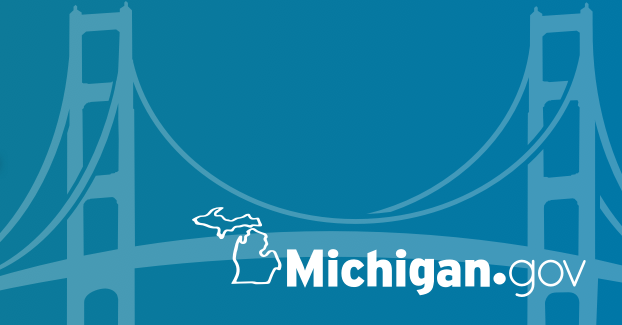
to Health Care, Child Care, Job Training, Food Assistance
LANSING, Mich. — Governor Gretchen Whitmer led a group of governors to send a letter to congressional leadership opposing any cuts to health care, child care, job training, and food programs as federal budget negotiations continue. Recently, Republicans in the House of Representatives released a proposal that would gut critical programs states and local governments rely on to feed families, protect access to quality health care, empower workers with the skills they need, ensure families have a roof over their heads, and help parents go back to work with affordable child care options.
“As national leaders debate the federal budget, we governors are speaking with one voice—do not cut health care, child care, food assistance, or housing that so many of the families we serve rely on,” said Governor Whitmer. “Millions of Michiganders rely on these programs to feed their kids, keep a roof over their heads, go back to work, learn new skills, or get better when they’re hurt or sick. These vital programs are non-negotiable. Any cuts to them would devastate working families across America and jack up their costs.”
The full text of the letter can be found here and below.
Dear Leader Schumer, Leader McConnell, Speaker McCarthy, and Leader Jeffries:
We write today to express our firm opposition to any efforts that would cut funding for programs that hundreds of millions of Americans pay into and rely on for their health care, retirement benefits, and more. While Congressional leaders have clarified that Medicare and Social Security will not face any cuts, the Supplemental Nutrition Assistance Program (SNAP), Temporary Assistance for Needy Families (TANF), Medicaid, and discretionary spending – literal lifelines for millions of Americans nationwide - are on the chopping block. As Governors, we speak with one voice: any federal funding cuts or fundamental changes to the spirit and intent of these programs will have dangerous repercussions for Americans across the nation, regardless of what political party is in power at the state level.
Several high-profile members, including those holding influential committee leadership positions, have endorsed efforts to target Medicaid, which provides health care to nearly 85 million children, adults, people with disabilities, and seniors. One of these proposals includes weakening or rescinding the Affordable Care Act’s Medicaid Expansion, reversing a decade’s worth of benefits to states that expanded coverage for their residents. Any effort to target this expansion could impact the 18 million Americans who have gained coverage thanks to the Affordable Care Act. Changes to Medicaid financing – in the form of a block grant, per capita cap, or limiting how states can finance their share of Medicaid—would have the same damaging impact: states would be forced to scale back crucial benefits and services due to financial uncertainty. Of course, it is worth noting that many of these misguided efforts are happening as states are navigating the unwinding of the Medicaid Continuous Enrollment Provision to ensure that those who gained coverage over the last three years are in a position to maintain health coverage. Collectively, these proposals would shift significant costs to states and undoubtedly lessen or eliminate coverage for millions of our residents.
As we emerge from the COVID-19 pandemic, food insecurity remains an acute concern for many of our residents. Nationwide, more than 41 million Americans receive SNAP benefits, including approximately 15 million children. In March, nearly two dozen House Republicans supported legislation to expand SNAP’s existing work requirements and eliminate the federal government’s ability to waive work requirements for states in areas of high unemployment. According to estimates from the Center on Budget and Policy Priorities, more than 10 million people, or one-in-four participants, would be at risk of losing food assistance under this proposal, including millions of children. These threats to SNAP come just months after a minimum of a $95 per month reduction in SNAP benefits following the conclusion of pandemic-related benefits in February. At almost the same time, another filed bill would impose work requirements for individuals seeking to remain eligible for both Medicaid and SNAP benefits.
Last week, House Republicans released the Limit, Save, Grow Act, a plan that would return federal government spending to Fiscal Year 2022 levels and cause irreparable damage to every state. Every day, millions of Americans rely on critical programs funded by the federal budget and implemented by state and local governments for health care, child care, nutrition, housing, and so much more. According to estimates from federal departments, these proposed cuts could include:
- Approximately 125,000 fewer job seekers would receive services and training from the workforce development system, hampering efforts to create good-paying jobs;
- More than 100,000 childcare slots would be eliminated, prohibiting countless parents from attending school, going to work, or forcing them to pay out of pocket for childcare;
- The Special Supplemental Nutrition Program for Women, Infants, and Children (WIC) would have to reduce participation, denying 250,000 new moms and young children food and nutrition services,
- The Housing Choice Voucher program would be forced to eliminate funding for 350,000 families, putting people—including kids—out on the street.
As Governors, we are uniquely positioned to best understand the needs of our residents, and waivers represent a needed tool to meet those needs. We are united in our opposition to expanded work and work reporting requirements in any crucial safety net program, such as SNAP, TANF, and Medicaid. We urge you to work in a bipartisan manner to find a solution that preserves funding for crucial programs that benefit all of our constituents.
###














